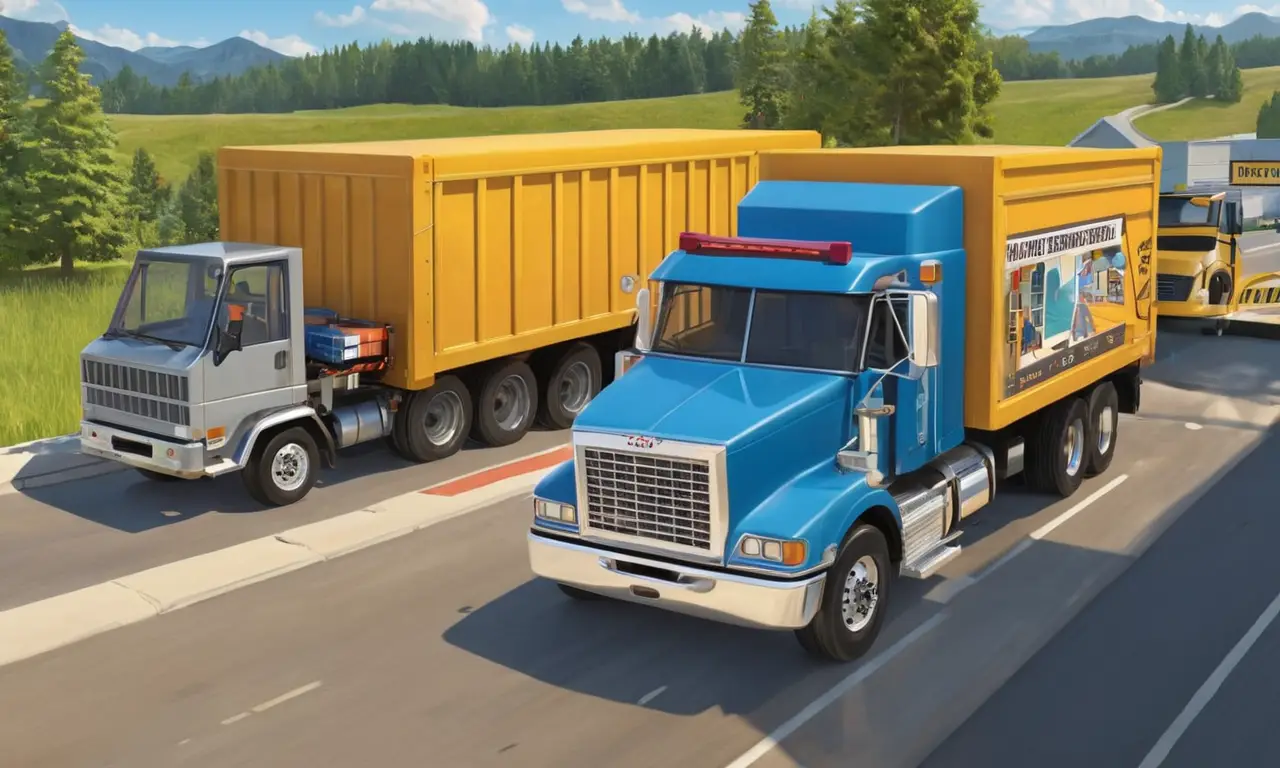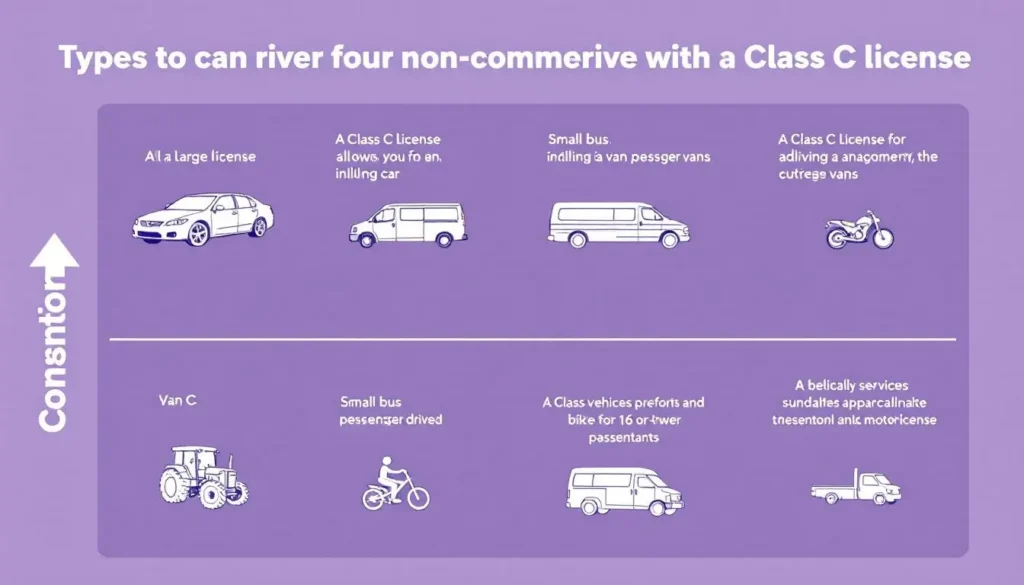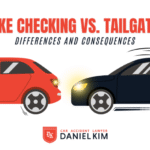Navigating the world of driver’s licenses can be confusing, especially when it comes to commercial vehicles. A common question arises: what exactly is a non-cdl class c license and how does it differ from a standard driver’s license? This article aims to shed light on this often misunderstood type of license, outlining its definition, requirements, uses, and key distinctions from regular licenses. By the end, you’ll have a clear understanding of when a non-cdl class c license is necessary and how to obtain one.
This article will delve into the specifics of the non-cdl class c license, exploring its meaning, the steps involved in obtaining it, the types of vehicles it permits, and how it compares to a standard driver’s license. We’ll also discuss common scenarios where a non-cdl class c license is required, providing you with valuable information to make informed decisions about your driving privileges.
Non-CDL Class C License Definition
A non-cdl class c license, often referred to as a “Class C” or “Non-CDL Class C,” allows individuals to operate certain commercial vehicles without the stringent requirements of a Commercial Driver’s License (CDL). Essentially, it bridges the gap between a standard driver’s license and a full CDL, permitting operation of specific types of commercial vehicles under defined weight limits.
It’s crucial to understand that a non-cdl class c license is not a universal permit for all commercial vehicles. It has specific limitations based on vehicle size, weight, and passenger capacity. For instance, a non-cdl class c license might allow you to drive a box truck for local deliveries but wouldn’t be valid for operating a semi-trailer truck or a large passenger bus.
The exact requirements and classifications for vehicles covered under a non-cdl class c license can vary slightly depending on your state’s regulations. Always consult your local Department of Motor Vehicles (DMV) website or office for the most accurate and up-to-date information regarding vehicle weight limits, passenger capacity restrictions, and other relevant details.
Requirements for Obtaining a Non-CDL Class C License

The process of obtaining a non-cdl class c license generally involves similar steps to acquiring a standard driver’s license but with additional requirements specific to commercial vehicles. These requirements typically include:
- Age: You must meet the minimum age requirement set by your state, which is usually 18 years old for operating most commercial vehicles under a non-cdl class c license.
Driver’s Education and Testing: Depending on your state, you may need to complete a driver’s education course specifically designed for commercial vehicles. You will also be required to pass both written and practical driving tests, demonstrating your knowledge of traffic laws and safe driving practices for commercial vehicles.
Medical Examination: A medical examination from a licensed physician is often mandatory to ensure you meet the physical requirements for operating a commercial vehicle. This exam may include vision, hearing, and overall health assessments.
- Background Check: A criminal background check may be conducted as part of the licensing process to verify your driving history and suitability for operating a commercial vehicle.
Uses of a Non-CDL Class C License
A non-cdl class c license opens up various opportunities for individuals who need to operate commercial vehicles within specific weight and passenger capacity limits. Here are some common uses:
- Delivery Services: Many businesses rely on non-cdl class c licenses for their delivery drivers, transporting goods such as packages, food, or construction materials in vans, box trucks, or smaller cargo vehicles.
Passenger Transportation: Some companies utilize non-cdl class c licenses for shuttle services, airport transportation, or tour buses that operate within specific passenger limits and routes.
Utility Services: Companies providing utility services like gas, electric, or water often employ drivers with non-cdl class c licenses to transport equipment, materials, and personnel to work sites.
- Moving Companies: Smaller moving companies may utilize non-cdl class c licenses for their drivers who transport household goods within local areas using smaller moving trucks.
Comparison: Non-CDL Class C vs. Standard Driver’s License

While both a non-cdl class c license and a standard driver’s license allow you to operate vehicles, there are key distinctions between the two:
- Vehicle Type: A standard driver’s license permits operation of most passenger vehicles, while a non-cdl class c license is specifically for certain commercial vehicles within defined weight and passenger capacity limits.
Insurance Requirements: Commercial vehicle insurance typically has different coverage requirements compared to personal auto insurance. When operating under a non-cdl class c license, you’ll need to ensure your insurance policy meets the specific requirements for commercial use.
Driving Restrictions: A non-cdl class c license may have additional driving restrictions, such as limitations on the number of passengers or cargo weight allowed. These restrictions are designed to ensure safety and compliance with regulations.
- Testing Requirements: Obtaining a non-cdl class c license often involves more rigorous testing procedures compared to a standard driver’s license, including specialized knowledge tests and practical driving evaluations for commercial vehicles.
Conclusion
Understanding the nuances of a non-cdl class c license is essential for anyone who needs to operate commercial vehicles within specific weight and passenger capacity limits. By carefully considering the requirements, uses, and distinctions between a non-cdl class c license and a standard driver’s license, you can make informed decisions about your driving privileges and ensure compliance with all applicable regulations.



